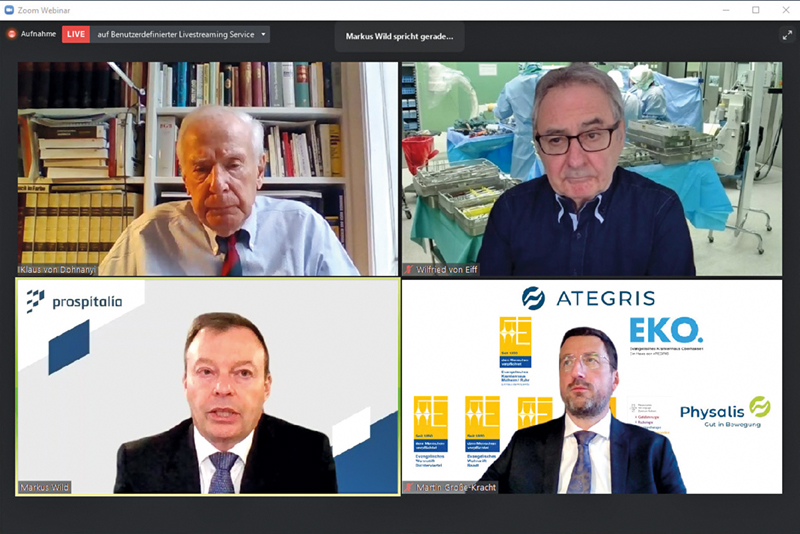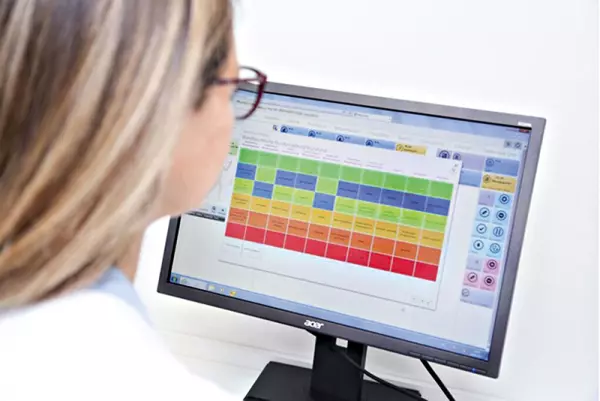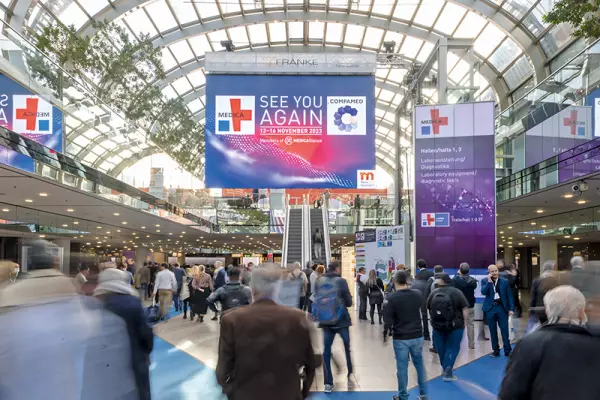
(02/2021) Eleven times in a row, the procurement congress of hospitals has had its permanent place in the calendar in December for buyers from clinics and suppliers. The organizing Wegweiser Media & Conferences GmbH made a virtue out of the Corona emergency: Instead of a face-to-face event, the “1. Digital procurement congress for hospitals ”. With around 300 registered participants, mainly from the clinic sector, it has met with a good response as a premiere and continuation. The focus was on the findings, challenges and lessons from the procurement crisis in the first and second waves of the pandemic. Clinics and suppliers are also moving closer together.
If you asked clinic buyers what the bad word of 2020 was for them, “delivery bottleneck” could end up at the very top. Prof. Dr. Dr. Wilfried von Eiff from the Center for Hospital Management (CKM) at the University of Münster made it clear at the opening plenum: "Delivery bottlenecks that already existed in various areas were exacerbated by Corona in hospital purchasing." Initially, it was mainly masks, personal protective equipment and ventilators plus accessories, since autumn / winter it has mainly been gloves.
Framework for security of supply
The bottlenecks in various drugs persisted as a constant. At the congress, there were calls for politicians not only to repair things, but to create framework conditions in order to guarantee security of supply. Dr. Klaus von Dohnanyi, moderator and advisory board member of Wegweiser, showed himself to be addressed as a politician and promised support to the buyers and clinic representatives. Politicians should also address the shortage of skilled workers in nursing and medicine, which became even more apparent in the second wave, was demanded: “What use are the best ventilators if there are no intensive care workers who can operate them ?!” That is why more attractive working conditions are needed for medical workers Skilled workers.
Consequences of the Lopez Effect
Prof. von Eiff gave a few examples of persistent bottlenecks, such as B. surgical sets, catheters or agents such as propofol and various drugs. He blamed the so-called Lopez effect, named after the former chief buyer at Volkswagen, to be responsible for this. This pushed down the prices of the suppliers more and more, so that they finally had to compromise on the product quality. And the German medical device market is considered a low-price market. It is therefore not surprising, says von Eiff, that manufacturers tend to consider markets with higher margins when making deliveries than the German market. And the delivery bottleneck in Germany is already there. The crisis has shown that open process chains are also important in Europe. However, falling prices and global purchasing have also led to international supply chains becoming longer and longer: After wage costs have also risen in China, Chinese companies buy their components, supplier products or complete products in low-wage countries such as Cambodia or Vietnam. However, the German supplier no longer knows these extended workbenches. The international supplier network is becoming more and more susceptible to failure: “If one fails, the supply chain can break off.” In the meantime, the prices for air freight or shipping containers have also multiplied and capacities are partially overbooked.
Problem: Consolidation on the manufacturer side
Another consequence of this development is the withdrawal of individual "players" from the health market. The trend then goes towards monopolies or duopolies in some product sectors. Mergers and acquisitions reinforce the trend towards consolidation on the manufacturer side. For reasons of competition, these in turn would have to limit the expensive provision of production capacities. In the event of massive increases in demand, this would create a bottleneck that would increase delivery bottlenecks. And because of price uncertainties, manufacturers often did not invest in additional production capacities. Uncertainty factors for the medical device market are also the MDR, the "heavily frequented" notified bodies for product approval and the imponderables of Brexit.
How clinics reacted
Against the background of the pandemic, Wegweiser commissioned the CKM









